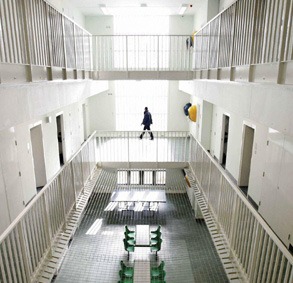At times it seems like the UK is a residual theocracy: look at the continued presence of bishops in the legislature and the growing proportion of state-funded religious schools. Is it surprising, in this context, that several bills before parliament fail to provide fairly for those with non-religious beliefs, despite the fact that the 1998 Human Rights Act made it unlawful to discriminate on the basis of religion or belief? The European Convention on Human Rights recognises freedom not of 'religion' but of 'religion or belief'. 'Belief' here includes (as the UN Human Rights Committee said of the same phrase in the Universal Declaration) 'non-theistic and atheistic beliefs, as well as the right not to profess any religion or belief' and cases in the European Court of Human Rights have borne this out.
Humanism is such a belief. Why, then, is the Government reluctant to provide humanists with their human rights?
Take the Charities Bill, which for the first time since 1603 seeks to codify the grounds for recognition as a charity. No-one any longer questions that humanist organisations can qualify as charities, but the bill provides a specific head (one of eleven) for the advancement of religion ' including non-theistic and polytheistic religions ' but leaves non-religious beliefs to be swept up under the ragbag twelfth head of unclassifiable charitable purposes. The Government is adamant ' despite opposition from the Joint Committee on Human Rights (JCHR) ' that it will not change the third head to 'the advancement of religion or belief'.
Similarly, the controversial bill on stirring up religious hatred is drafted to protect any 'group of persons defined by reference to religious belief or lack of religious belief' ' but any group defined by its adherence to a positive but non-religious belief is not specifically protected.
The Government has consulted for four years on proposals (part of a reform of the civil registration system) to simplify the absurdly complicated 300-year accumulation of laws that govern marriage. One proposal was for nominated persons from any religion to be entitled to conduct weddings. Repeated submissions from the British Humanist Association seeking extension of this privilege to their trained and accredited celebrants were ignored or refused. Officials said it would be 'too controversial' for the short-cut regulatory reform route they planned to use ' even though the procedure was approved for correcting human rights conflicts. Besides, the Human Rights Act requires laws to be generously interpreted so as to be consistent with the Convention. In fact, this provision has just been used to approve humanist weddings in Scotland.
A final example is the refusal of the Department for Education and Skills to amend two plainly unlawful guidances to local education authorities (LEAs). One bans humanists from the group on local advisory councils on religious education that represents religions and denominations other than the Church of England (which gets a group of its own).
The other tells LEAs to give preference in providing free transport to pupils going to religious schools, leaving parents who want their children to go to an equally distant school without a religious ethos to pick up the bill themselves. In this case the JCHR has several times called for revised guidance.
What motivates the Government, despite its agenda of equality and inclusion, to continue to discriminate against humanists? Is it a residual feeling that rejection of religion amounts to a rejection of all morality and civilised values? Is it political kotowing to Muslims, the Church of England and any other group who might wield voting power? There is no doubt that these account for its promotion of religious schools and of the religious hatred bill, its refusal to repeal the law requiring Christian worship in schools or to appoint humanist chaplains in the NHS or the armed services despite recent appointments from a variety of minority religions.
Their main problem, however, is not with humanists but the others who might seek recognition as a 'belief'. The word seems vague, and there are two groups in particular that seem to worry the politicians. In past years ' when the powers that be were still using every last administrative device to keep Muslim schools out of the voluntary aided system ' there was a similar illiberal anathema against the Scientologists. Irrational and cultish they may be, but if they had been unambiguously religious ' like the Moonies, say ' they would have been accepted. The Human Rights Act gives Scientologists, as followers of a belief, the same rights as Moonies, as followers of a religion. Politicians seem, however, to want to avoid recognising this.
The other group that worries politicians is fringe political organisations. Could Marxists not argue that they have a system of belief?
There are two responses to this paternalistic resistance. One argues from principle: support for human rights only for those you like is no support for human rights at all. The other is pragmatic. The word 'belief' is nowhere near as open to trivial interpretations as it might seem. In the German text of the Convention it is Weltanschauung ' world view ' and court cases long ago determined that it excludes political beliefs and that it means 'more than just 'mere opinions or deeply held feelings'; there must be a holding of spiritual or philosophical convictions which have an identifiable formal content.'
What is more, while the law must not discriminate against beliefs ' or religions ' as such, it may freely discriminate on other grounds. For example, charities are required to be for the public benefit, a test that could usefully be applied to exclude some religious cults as well as to keep undesirable beliefs from charitable privileges.
The Government needs to realise that the European Convention on Human Rights 'excludes any discretion on the part of the State to determine whether religious beliefs or the means used to express such beliefs are legitimate.' It is time for the Government to embrace the term belief and its definition in case law, so as to give the non'religious a fair deal.
David Pollock is a trustee of the British Humanist Association and the Rationalist Association

